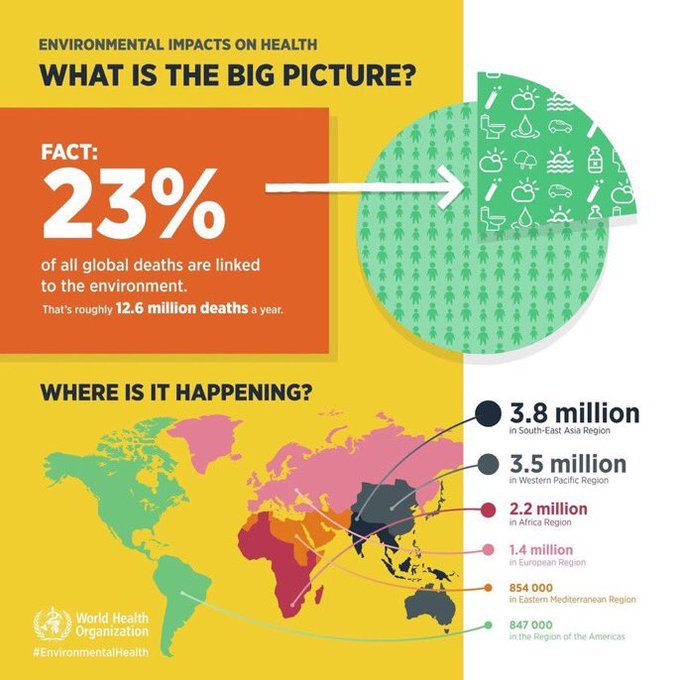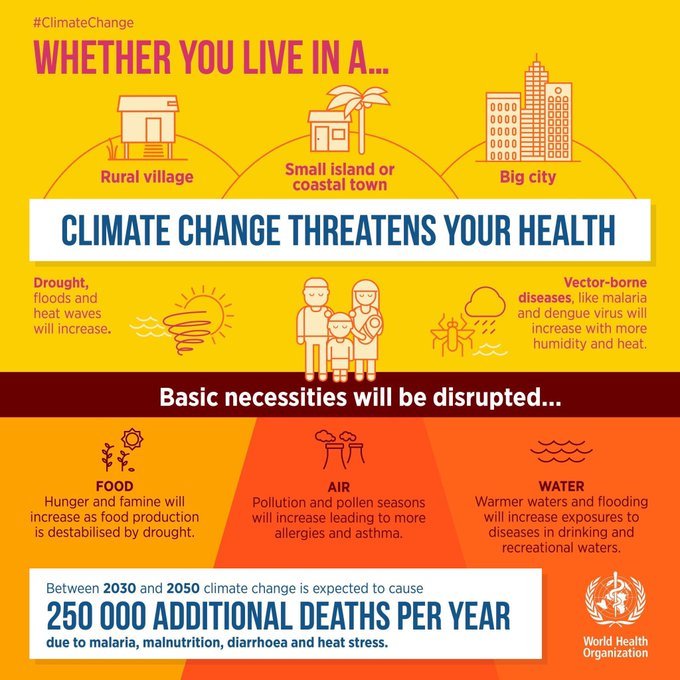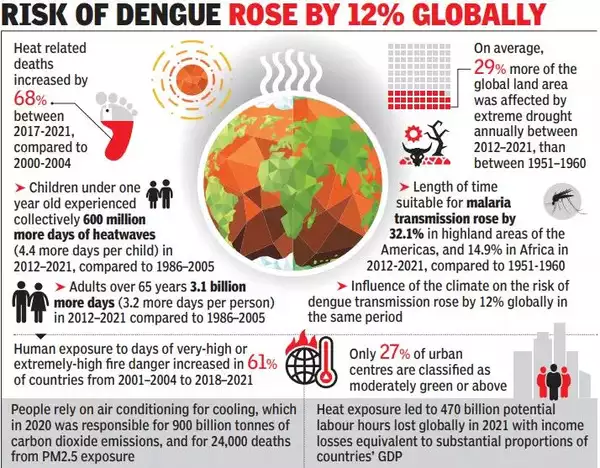The effects of heat stress, lung damage caused by wildfire smoke, and the expansion of disease-carrying mosquitoes to different areas due to increasing temperatures. Public health has been affected and worsened by climate change, which is being discussed for the first time at the annual U.N. climate summit COP28.

Government ministers will be discussing methods to safeguard individuals from health risks caused by climate change, which pose a significant threat to the progress made in public health over the years. The World Health Organization predicts that by 2030, malnutrition, malaria, diarrhoea, and heat stress will be responsible for an additional 250,000 deaths annually worldwide.
As temperatures rise and rainfall increases due to climate change, mosquitoes that spread diseases like dengue, malaria, West Nile, and Zika are moving to different regions where they can reproduce more easily.

The number of reported dengue cases has increased significantly from 2000 to 2019, going from around 500,000 to over 5 million, as per the WHO.
Climate change is causing an increase in storms and flooding, which in turn is allowing other water-borne diseases to spread. Cholera, a disease that had been declining for decades, is now on the rise again, even in countries where it had almost been eradicated.
If left untreated, cholera can cause death within a few hours. Recent outbreaks have been far deadlier, with fatality rates now at the highest recorded level in over a decade, the WHO said.
As temperatures continue to rise due to climate change in the next few decades, heat stress caused by global warming is expected to affect a large number of individuals, potentially reaching hundreds of millions of people.

According to a recent report from the Lancet medical journal, in 2022 people faced an average of 86 days with extremely high temperatures, as the world is already 1.1C (2F) warmer than before industrialization. If global temperatures rise by 2C compared to pre-industrial levels, the number of heat-related deaths per year could increase by more than four times.
The heat has also made forests drier, fuelling extreme wildfires that have swept across large swathes of the world in recent years.
During the decade starting in 2010, more than 2 billion people were exposed to at least one day per year of unhealthy air pollution from fire smoke, according to a September study in the journal Nature. That was up by 6.8% compared with the previous decade.
Reference- Reuters, Journal Nature, journal Nature Medicine, World Health Organization (WHO) website, Lancet Medical Journal






